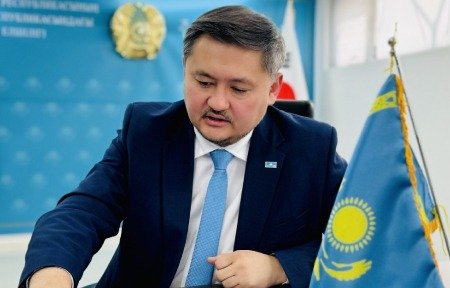While many international students still prefer to study in North America and Europe, a growing number of them have begun considering options closer to home because of stricter immigration policies, rising living costs, and uncertainty of employment after graduation.
In Canada, the government said it will reduce the number of study permits by 35%, capping the total at 292,000 for 2024. This is a huge drop considering that in 2022, the country welcomed 807,260 international students.
The curbs imposed on international students have prompted students to look at alternative countries. According to Study in Kazakhstan, the country has become a promising place for higher education in Central Asia.
“We have 119 universities, including esteemed public institutions, which is quite a large number for a small country, population-wise. Given this, we want to build a strong brand name: Study in Kazakhstan,” said Minister of Science and Higher Education Sayasat Nurbek.

According to Nurbek, Kazakhstan serves as a perfect crossroad for students, researchers, and academics from any nationality for several reasons.
Increasing collaboration with foreign universities and companies
A key part of Kazakhstan’s internationalization strategy involves attracting higher education institutions from countries such as Turkey, Germany, Canada, America, China, and South Korea to establish satellite campuses in the country.
“We just signed a deal with Ministry of Universities and Research of Italy, so there will be two Italian universities coming to Kazakhstan,” Nurbek said.
The country also aims to attract international organizations, ensuring students can apply their global education practically. Companies like Huawei and Samsung are among the many multinational corporations establishing regional headquarters in Kazakhstan.
Liberal immigration and regulatory legislation
One common concern among international students is the ease of immigrating and settling in the country they are studying in. In response, Kazakhstan has significantly liberalized its immigration policies in recent years.
“We allow our foreign students not only get a student visa but also have a work visa for two years so they can stay and find suitable employment positions,” Nurbek explained
To address concerns from foreign institutions about potential risks to their autonomy, the Kazakh government has issued special decrees, which ensure that incoming foreign institutions maintain their autonomy.
“Foreign universities don’t have to comply with local regulatory standards. We give them maximum freedom and flexibility to operate in the region,” Nurbek said.
Industry 4.0 curriculum
Although Central Asia has yet to become a technology hub like its Western counterparts, Nurbek said he believes that the region’s innovation capabilities of the region should not be underestimated.
“We don’t have resources like some Arabic countries nor do we have billions to invest in education and technology. But we are open to bold, experimental ideas. So, we are piloting interesting innovation,” he said.
Kazakhstan is among the first countries to collaborate with Coursera to design AI courses as part of the national curriculum. The country is also launching blockchain engineering and compliance degrees in partnership with Binance and recently established 50 digital labs with Huawei. Additionally, Kazakhstan is designing a course on AI literacy with Google.
